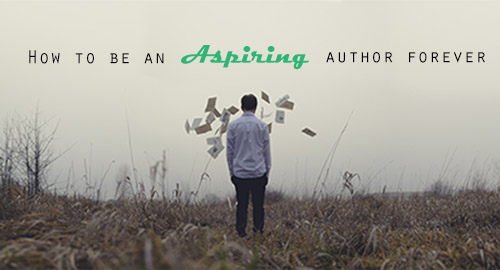 We all have dreams and aspirations. Some of us want to become family doctors, nurses, or even pediatric otolaryngologists. Some people dream of spreading knowledge by becoming university professors, preschool teachers, or specialists in the study of the metacognitive processes of emotional intelligence. Then, of course, there are those of us who are inspired by the arts. We are the real dreamers: the lovers of stage, film, canvas, book, and so many other forums for expressing artistic creativity.
We all have dreams and aspirations. Some of us want to become family doctors, nurses, or even pediatric otolaryngologists. Some people dream of spreading knowledge by becoming university professors, preschool teachers, or specialists in the study of the metacognitive processes of emotional intelligence. Then, of course, there are those of us who are inspired by the arts. We are the real dreamers: the lovers of stage, film, canvas, book, and so many other forums for expressing artistic creativity.
Many of us are aspiring authors who dream of writing the next classic novel. We don't just desire commercial success––we want our work to mean more than the money it makes and the copies it sells. We want to transcend: to write a book that is years ahead of its time, that might not be appreciated by modern audiences but will most certainly be studied for centuries by more enlightened minds. We want future readers to pore over our biographical details, hoping to glean more insight into our particular brand of literary genius. Yes, we know what we want. We are dreamers, after all, and we love getting lost in our fantasies.
Taking all of this into consideration, it is fair to say that being an aspiring author is almost as wonderful—no, better, in fact—than actually being a published writer. Because doesn't publishing a book end the dream? What if publishing is not followed by success? What if, after laboriously penning what is surely destined to be a classic novel, we receive absolutely no recognition? Being ahead of one's time is all well and good, but can we really handle the cold rejection that might accompany our artistry? And what if our work, by some unspeakable horror or mistake of the cosmos, is never successful?
No, there is certainly no place in the publishing world for dreamers like us. Luckily, there is no reason why we can't keep the dream alive forever. If you're a dreamer like me, all you need to do is follow these simple steps. I can guarantee that if you stick to these guidelines, you will remain an aspiring author forever:
1. Never ever make plans.
 Outlines aren't for creative thinkers or committed aspiring authors like us—they're for analytical fools who are set on completing their projects. How dare someone suggest that you stifle your creative process by tying yourself down with a preplanned plot? You aren’t some robot sent out to complete a mundane task. You, by Jove, are an artist! You must be organically and spontaneously inspired! Would a sculptor choose his subject before he began to mold the form? Would an architect draw a blueprint before picking up her tools? Would an actor learn his lines before delivering his performance? The absurdity of it all!
Outlines aren't for creative thinkers or committed aspiring authors like us—they're for analytical fools who are set on completing their projects. How dare someone suggest that you stifle your creative process by tying yourself down with a preplanned plot? You aren’t some robot sent out to complete a mundane task. You, by Jove, are an artist! You must be organically and spontaneously inspired! Would a sculptor choose his subject before he began to mold the form? Would an architect draw a blueprint before picking up her tools? Would an actor learn his lines before delivering his performance? The absurdity of it all!
2. You are the sole creator of your work. Ignore all others.
People will tell you that writing is a process. They will say that part of this process is allowing others to read your work. They might even tell you that you should put your work into the hands of an editor, trusting him or her to improve the story and the quality of the language. But those people don't know you. They don't know that you are so intrinsically connected to your book that it is physically impossible for you to entrust it to someone else. They don't realize that, unlike some of these published writers, you are the only person who knows what is best for your story. Editors, with their red pens and their "constructive" commentary, are evil. They will destroy your art, if not your dream. Avoid them at all costs.
3. Only write when you are feeling inspired.
Forcing yourself to write is like forcing your children to complete their homework. What do they get out of the experience if it’s pushed on them? Do they really learn their multiplication tables by doing their math homework? Wouldn’t they learn them better if they were to study them when they wanted to? Don't make a schedule to follow when it comes to your writing. Work at your own pace, and work only when you feel inspired to do so. As a committed aspiring author, you're in no rush.
4. Commercial literature is for plebeians. You are a real artist.
 Plot-driven thrillers, books with romantic subplots, or anything driven primarily by the action of the story should hold no interest for you. You are too good to read the books that others can't put down, because you are a literary genius. Stay away from these books. If you dare to read them, their obvious inferiority may rub off on you. Sure, Stephen King may be a millionaire with one of the biggest and most diverse fan bases an author has ever had, but you, you are an artist. That's why you're sticking with your role as an aspiring author, right?
Plot-driven thrillers, books with romantic subplots, or anything driven primarily by the action of the story should hold no interest for you. You are too good to read the books that others can't put down, because you are a literary genius. Stay away from these books. If you dare to read them, their obvious inferiority may rub off on you. Sure, Stephen King may be a millionaire with one of the biggest and most diverse fan bases an author has ever had, but you, you are an artist. That's why you're sticking with your role as an aspiring author, right?
Dreams are important. If you're an aspiring author, and you're good at being an aspiring author, why on earth would you do anything differently? Everyone knows that change is bad and success is subjective. So stick with the guidelines above and you'll have no problem being an aspiring author forever.
If you decide to turn your back on all of these very important aspects of the aspiring author's static and solitary life, consider checking out the book editing services offered by Scribendi.com. If you're going to change your game, you'll have to play by some new rules, and I've heard that the editors at Scribendi.com don't bite nearly as hard as the others.
Get Constructive Feedback to Improve Your Writing
Hire a Professional Editor, or Get a Free Sample



